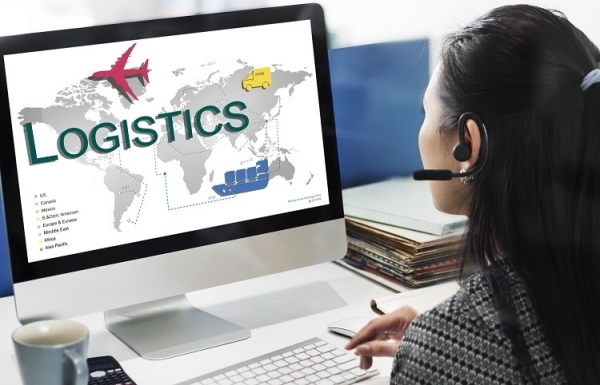Long-term perspectives exceed supply chain concerns
[ad_1]
Vietnam’s growing involvement in global supply chain networks has been hampered by the pandemic, but its increasingly important long-term role is not considered threatened.
| The long-term outlook goes beyond supply chain concerns. Photo illustration – freepik.com |
The latest survey by the German Chamber of Industry and Commerce (AHK) found that 60% of German companies in Vietnam complained about price increases or supply chain bottlenecks for raw materials, intermediate products and other goods. The main reasons for raw material shortages as claimed are increased demand, low production capacity and transportation issues that continue throughout the COVID-19 pandemic around the world.
Bottlenecks in the supply chain cause many difficulties in terms of production activities for the companies surveyed such as higher input prices, longer waiting times, even production interruptions and delays. shutdowns.
The survey covered 3,000 German companies in various countries and in all sectors. He pointed out that 90% of German companies in Vietnam said finding new or additional suppliers in Asia-Pacific and increasing inventory levels were relevant solutions. Half of the companies surveyed have had no choice but to increase the manufacturing prices of their products, or intend to do so.
Despite the challenges, Marko Walde, chief representative of AHK Vietnam, told VIR that Vietnam still plays a growing role for German companies as a mid-term manufacturing base. Thanks to the EU-Vietnam Free Trade Agreement, Vietnam is becoming increasingly essential for German investors in the Southeast Asian region.
Meanwhile, Prime Minister Pham Minh Chinh recently hosted a reception for U.S. Embassy Vietnam Chargé d’Affaires Christopher Klein, as well as a number of U.S. businesses and investors in that country. During the reception, U.S. officials raised concerns about some of the challenges in sustaining Vietnam’s global supply chain, including transportation, production, administrative procedures, taxes and fees, access COVID-19 vaccinations and entry and travel visas from foreign experts.
The companies have said they want to make long-term investments in the country. Nonetheless, they expected future protocols at the local level to be more effective, detailed and responsive to avoid supply chain head winds.
The complexities of the supply chain are growing more and more as Vietnam grapples with its largest coronavirus outbreak on record. In August, Vietnam’s economy fell for the fourth consecutive month, marking the country’s longest period of recession since the start of the pandemic, according to the ANZ Vietnam Activity Tracker.
While the number of COVID-19 cases has generally increased every day for the past few weeks, vaccination rates remain low. The vaccination campaign accelerated in early August but has since declined. Only more than 20% of the population received their first dose and only 3% of the population has been fully immunized, the lowest rate in Asia.
Last week, Hanoi in particular launched its vaccination campaign in an attempt to reverse the trend, with large-scale programs implemented in various districts.
ANZ analysts Dhiraj Nim and Khoon Goh wrote that the pressure on exports is of particular concern in light of weakening growth forecasts. Specifically, exports had been the mainstay of growth until the ongoing pandemic wave caused manufacturing centers to shut down earlier this summer.
Despite the current slump in domestic demand, analysts have nonetheless highlighted the role of Vietnam’s long-term prospects in the global supply chain. “Beyond short-term concerns, Vietnam’s medium-term economic outlook remains favorable,†they wrote. “The pandemic has had no effect on the country’s attractiveness as a manufacturing hub. There is also plenty of room for political support to help the economy recover even more. “
Filippo Bortoletti, Senior Director of International Business Advisory at Dezan Shira & Associates, told VIR: “Due to government restrictions to contain the pandemic, bottlenecks in logistics infrastructure are hampering local manufacturing industry. as manufacturers are challenged by the onerous restrictions and regulations on the movement of goods. During the coming period, manufacturers will implement workplace safety measures and develop appropriate contingency plans in the event of an outbreak inside the factory. “
While the epidemics have slowed the rise in manufacturing orders in Vietnam, Bortoletti felt these delays are only temporary. “They have made multinationals understand that it is essential to diversify geographically to mitigate the risk of supply chain disruptions,” he explained.
“As soon as the situation in Vietnam stabilizes, orders should flow into Vietnamese manufacturing, as expected by analysts and as expected by these multinationals before the onset of the current coronavirus epidemic.”
Source: VIR

Pro-competitive policies in logistics sector can help Vietnam recover from pandemic
Pro-competitive policies can help Vietnam continue to make progress in the logistics sector and help the country recover quickly from the impacts of the pandemic, the Organization for Economic Co-operation and Development said in its last two reports.
[ad_2]

